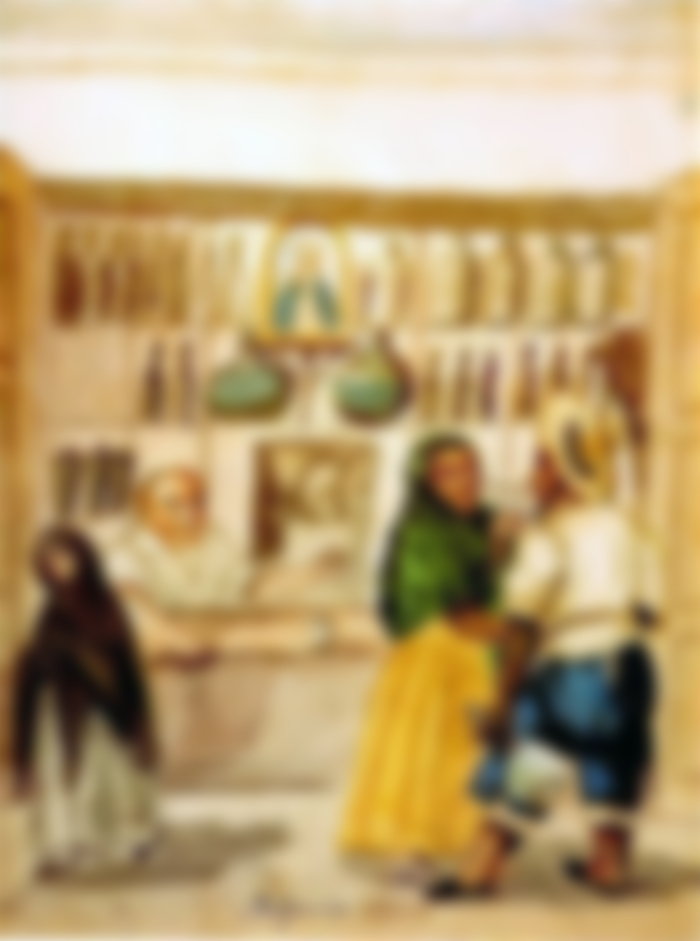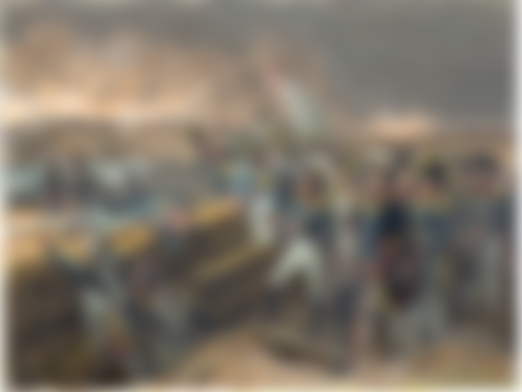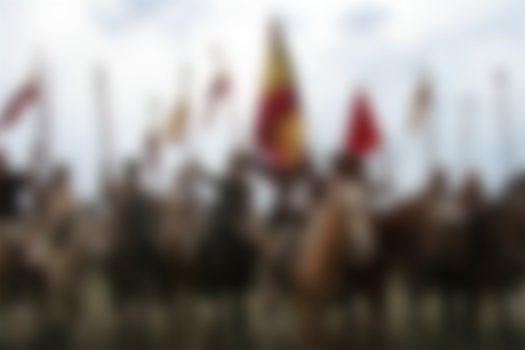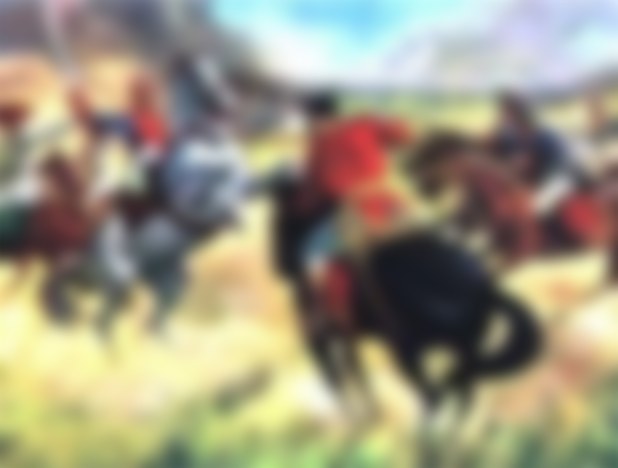The Antihero of Venezuela - José Tomas Boves (El Urogallo)

In Virtual Variety we love to tell stories, we love to investigate about characters that changed the course of this, however there are facts that today remain a secret or mystery. That is why we bring the story of a man who adapted to the reality of a land that did not see him born, but grew up, a man that many remember with hatred and fear, but others still admire him and even consider him a true hero.
Who is José Tomas Boves?
On September 18, 1772 he was born in Oviedo (Spain). Named José Tomas Rodríguez de Bobes, his parents were Manuel Rodríguez de Bobes and Manuela de la Iglesia. They were humble people, his father turned out to be very loving and had several love affairs, however his life came to an end in 1776, leaving José Tomas and two sisters orphaned. In her May fell the responsibility to take care of her home and support her 3 children, so she decided to work as a maid in a family home, so that she would have something to eat, however she did not have enough money to the point that her daughters had to help her. In January 1794 Bobes decided to enter the Royal Asturian Institute, where she began to study Nautical Science for four years.

Thanks to these studies, he managed to graduate second class in the Merchant Navy. His life began to have some improvement, in that same year he began to exercise his profession, in one of the overseas mail ships, sailing throughout the Mediterranean, but his real opportunity was yet to come. In the year 1803 his incredible qualities at sea, intelligence and perseverance led him to obtain the title of First Pilot, with such recognition, he entered to work in the company of ships: Plá y Portal, this company was based in Venezuela, one of the colonies of the Spanish Crown, so his new job was in the new world, he was transferred to that land, where he began to work immediately, however the problems followed him, he always received letters from his mother, Boves, motivated by the economic problems of his family in Spain, decided to accept some extra jobs as smugglers, something that was very condemned and could cost him his freedom. And as nothing in life is perfect or lasting, he was discovered.
José Tomas was arrested and sent to prison in the Castle of Puerto Cabello. Those were terrible times for the Spaniard, who understood the magnitude of his problem, because he wanted to help his family, he ended up going to jail. However, his luck changed when the owners of the company where he worked interceded on his behalf and reached an agreement with the authorities, who reduced his sentence to "confinement" in a town on the Venezuelan plains called Calabozo. In this plains town, Boves set up a "Pulpería" (a kind of store where a great variety of merchandise was sold). Without thinking about it, this new reality in his life, made him meet an endless number of people from all over the country, and thanks to this he understood where his place was, it turns out that José Tomas did not feel good meeting with the High Alcurnia of the population, on the contrary, he felt good chatting with: Indians, slaves, mulattos and all those who occupied the lowest rung of the social class, of Venezuela.

After serving his sentence, and regaining his "freedom", he dedicated himself to travel all the central plains of Venezuela, thus starting a new cattle trade, reaching the most remote places, this made him gain an incredible knowledge in many subjects, from cattle breeding, the functioning of the political, social and economic system of this colony. Even how to gain the trust of people with good charisma. Something that characterized Boves was his great passion for women, and that way of falling in love, that is why when he met Miss Isabel Zarrasqueta, he fell in love, to such an extent that he asked for her hand, to get married, this was the daughter of a respected Basque merchant of much money, called Guillermo Zarrasqueta, both lived in San Sebastian de los Reyes, however Mr. Guillermo decided to reject Boves, because he did not have enough money nor the necessary class to be at the height of his daughter.
Life in the plains continued as usual, slow, with a refreshing breeze but with a tormenting heat, however in the year 1810, something happened that would change the history of Venezuela, the Independence Movement arose, those who conformed it had the ideals of giving freedom to Venezuela and become independent from Spain, Although Boves was Spanish by birth, he supported this movement, and even tried to join it, wanting to contribute money and cattle, but he was rejected and imprisoned in the town of San Carlos because they thought he would betray them, something that caused a great hatred in Boves and he swore revenge against those who did not allow him to help. After being freed he returned to his life in Calabozo, dedicating himself to his store and cattle business, the Spanish Crown upon learning of the plans that this independence movement had, reacted directly, and the one in charge of responding was Captain Domingo Monteverde, without a doubt this made tempers flare, the Patriots began to catalog all the Spaniards as followers of the Spanish Crown, and the reactions were not long in coming. They catalogued Boves as a suspect and immediately sent him to detention, his stay in jail was not the most pleasant, all those of the high society of Calabozo, who lived with him a few hours before, mistreated him verbally and physically.
In the middle of May 1812, something happened in the town of Calabozo, a retinue of Domingo Monteverde himself, led by Officer Antoñanzas, arrived with plans to take the place, when they checked the cells they found Boves detained and immediately ordered his release and offered him something he did not expect, to join the Realist Cause and fight against those who wanted independence from Spain, Boves, even with that desire for revenge latent in his mind, did not think much and accepted to join. That was how he was named Officer of Urbanos, that same day he ordered to imprison all those Patriots who supported the independence, and with this part of his revenge was achieved in a certain way. In 1813 he received an appointment that left him surprised as General Commander of Calabozo, and his new mission was to give a lesson to a nearby town called Espino, it is here where Boves began to earn a reputation as a cruel man, because all those who were considered Patriots, were killed by orders of Commander Boves, executed many prisoners, bringing as consequences a war between Spaniards and Americans.

The combat had begun, there was no turning back, Boves joined the forces of Domingo Monteverde, and together with Marshal Juan Manuel Cajigal, carried out a campaign in the Venezuelan East, which did not turn out to be very positive. However, this gave Boves the opportunity to act autonomously, since he did not want to continue under the orders of the Spaniards, because he did not have the capacity to defeat the Republicans. For this reason Boves decided to do the necessary work to win this war, his great knowledge of the plains, and his way of treating the most disadvantaged, helped him to win the affection and devotion of the Indians, slaves and poor mulattoes, In this way the number of men who followed him was increasing, a point in favor of recruiting them, was to treat them as equals, where he did not exercise his position of Commander, but as a friend, and they shared the hatred against those rich whites who treated badly those who did not have a coin in their pockets.
The second in command of Boves' army, a man named Francisco Tomás Morales, told a chronicler: "He ate with them, slept among them, and they were all his amusement and entertainment, knowing that only in this way he could have them at his devotion and count on their arms for the combats...". That is why Boves earned the nickname of: Taita Boves, it should be noted that the word Taita in the plains of Venezuela, means "Dad or Father". While Boves was recruiting men, Calabozo was liberated by Simón Bolívar (who many consider to be the Liberator of Venezuela and Boves' main enemy). One of his first achievements as an autonomous chief was to recapture Calabozo on September 11, 1813 and defeat Bolivar's men. For the month of December of the same year, Boves already had more than 6000 men, most of them on horseback, the curious thing about this army is that it was made up of slaves, a large number of them coming from Barlovento (A sub-region of the State of Miranda, who in colonial times served as a refuge for many slaves and Indians who fled from the places where they were exploited), Indians and all those who had no money, no hope of life, all those who hated those Republicans, who only wanted independence for them to obtain the wealth of the country, but not to achieve a real change.
The name of Boves became a real terror for Bolivar and all those who supported his cause, all over Venezuela, whoever heard that Boves the Capercaillie or Taita Boves was near, felt a real terror and even more if he supported the republican cause. Undoubtedly Boves was perfected in the art of war, his strategies were mostly successful, some not so successful, but he had his escape plans, the plains gave him back the energies that were taken away from him in the battlefield, and more and more men joined his great army, Bolivar's high command did not understand how he managed to move so much mass, how that man with his words and charisma, made many consider him a true God.
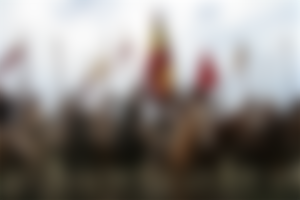
Such was the magnitude of Boves' army, that he divided his army in two, sending a large number of men to take Caracas (the current capital of Venezuela) and another group to the city of Valencia, a group that he would command. In Caracas, where Bolivar's family and other members of his army lived, they managed to flee before the arrival of the Taita's men, because they feared to die at the hands of these "savages" as many called them. On July 7th Caracas was taken by Boves' forces and on the 10th of that month Valencia fell into Boves' hands. The Republicans were really hit in the morale, by these events and they retreated towards the Venezuelan East, thinking that Boves would not reach them because of his triumph in taking two important cities of Venezuela, however they underestimated him, he undertook another campaign towards the city of Cumaná which he still managed to take, and there he defeated certain high-ranking military men who supported Bolívar, they were defeated and died on the battlefield. It seems that luck smiled on the great Boves.
But everything in this life is temporary, on December 5, 1814, José Tomas Boves was killed by an enemy spear, many say that this was due to a trap orchestrated by Simón Bolívar himself, since it was believed that he would fight Boves face to face, but apparently there was a deserter of the Republican forces united with Boves, who stuck him with the spear. That day many llaneros, Indians and slaves were overwhelmed by the loss of their Taita, of that man who gave them back their hope and who treated them as if he were a brother, uncle or father. Boves was buried in the church of Úrica. And Morales, his second in command, took control of the Army.

Talking about Boves is something really interesting, for us to make this post we had to read a lot, analyze, compare and above all give our opinion. In Venezuela, talking about Boves is like talking about Satan himself, he is a very hated character, however there are some people who classify him as the true Liberator of Venezuela, because his cause was more just than that of the Republicans, they claim that he managed to move that popular feeling, that he became the voice of those disadvantaged who were being oppressed by their own people, in the Venezuelan coasts, Boves was very well received and valued, in the plains he was sought after and cared for. His way of thinking about those who were in the lowest social stratum of Venezuela, earned him their respect and admiration. We are struck by the words of the presbyter Juan Antonio Rojas Queipo, in the funeral acts of Boves, he said with great exaltation: "Boves had challenged Bolivar to fight hand in hand with him", something that was not fulfilled. The curious thing is that Boves obtained a Post Mortem promotion: "Brigadier General of the Royal Armies of His Majesty". There are many characters in American History that have been forgotten or displaced, however the more we read and investigate, we see that there are things that are missing, things that do not fit, and men like Boves who with his great strategy, charisma and attitude managed to do really fascinating things, History is told depending on the ideology of each one, however in Virtual Variety we try to be impartial and tell the facts as they "Happened" we will never really know how they happened one hundred percent, but it is up to you to analyze and give us your opinion about this man, about what happened, and if he really should be called a "Liberator", we close this post with the words of the Chronicler of the Defenders of the King José Domingo Día: " ... the bravest man in the whole world, the most disinterested of all men, the one who in all his actions had no other object than the service of S. M. and the punishment of his enemies, the terror of Bolivar and of all sedition and one of the Europeans most worthy by these characters of this priceless name...".

Follow us on
Twitter » @Virtual_Variety
Telegram » @Virtual_Variety
Noise » @Virtual_Variety

